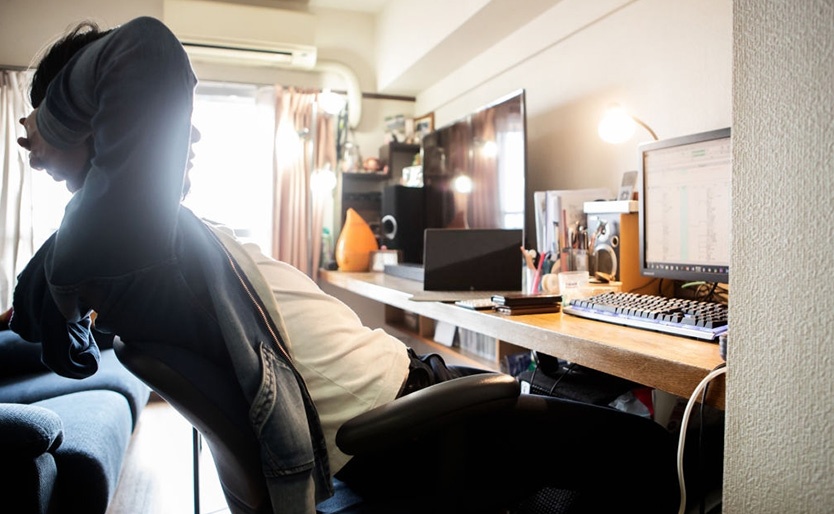More people are working from home during the coronavirus pandemic in an effort to defend society from COVID-19. As a result of the stay-at-home orders, they’re spending more time in their kitchens, living rooms, and home offices, where electrical hazards can arise. With the increased usage of electrical devices in many households such as; work computers, tablets, phones, and heaters, a recent study by Charity has discovered that more than two-thirds of those operating from home are using extension leads or adaptors with the mobile device they’re working on, and 38% of them have more appliances plugged into one than they normally should. Every year, over 35,000 home fires occur, many of which are caused by electrical mishaps, resulting in 1,130 injuries and 500 deaths, according to the Electrical Safety Foundation International (ESFI).
Since May is National Electric Safety Month (NESM), the organisation is raising awareness. It also published a new infographic titled, “Electrical Protection While Working from Home,” which includes these safety tips:
Do not overload outlets:
When an outlet is overloaded, it draws more power than the circuit can accommodate. Never use extension cords to connect more than two appliances at the same time. An overload can result in a life-threatening situation.
Unplug appliances when they are not in use:
Unplugging appliances when they are not in use saves electricity. It also lowers the likelihood of electric shocks or explosions. Computers, televisions, DVD players, modems, cable TV sets, and stereos are all items that should be unplugged.
Use extension cords only when necessary:
Extension cords should never be used as a long-term solution. With constant use, they are vulnerable to deterioration. Plug and unplug the cable for a brief period, and store it when you’re done with it.
Never use a power strip or extension cord to link fans or space heaters:
They should be plugged directly into a socket. Otherwise, the power strip or cord can overheat, short-circuit, and catch fire due to the amount of energy released.
Regularly inspect all electrical cords for damage:
Sparks, explosions, and shocks, as well as electrocution, can result from tears in insulation and exposed wires. In this scenario, using an appliance can be particularly risky. As soon as possible, replace the damaged cable.
Make sure cords aren’t tripping hazards:
A cord near a doorway or across a walkway may cause a tripping hazard. A slip, trip, or fall can result in serious bruises, broken bones, and injuries to the head, brain, and spine.
Cords should not be run under carpets, rugs, doors, or windows:
An electrical cord covered with carpet can quickly overheat, and a door or window sash can harm the cord, posing a safety hazard. Also, never run a cord under or over a beam or under heavy furniture.
Maintain a distance of at least three feet between combustibles and heat sources:
To minimise the risk of fire, keep paper, wood, household chemicals, and other combustible materials (or anything that can emit combustible vapours) away from heat sources.
Examine the wattage of your lights and lamps:
Brightness, temperature, and colour rendering index are all important factors to consider, so be sure to double-check the wattage to ensure the light is protected and won’t trigger an electrical overload.
Check the smoke detectors once a month:
The loud siren is activated by pressing and holding the test button for a few seconds. This indicates that the device is operational. Replace the batteries or the smoke detector if the alarm is faulty or does not work.
Additional Tips to keep in mind, while working from home:
Electrical objects should not be charged on beds. Always charge on a non-flammable, hard, flat surface. Use our online socket calculator to ensure that sockets and extension leads are not overloaded.
Maintain a clean work environment. Many people live in cramped quarters, so it’s important to keep hot and cold beverages away from electrical devices.
Do not link extension leads in a “daisy chain” configuration. If your cable isn’t long enough, don’t use another adaptor. Using a longer lead, or move your workspace closer to the socket.
Lunchtime is a good time to be mindful. For the time being, many of us are cooking lunch at home, so it’s vital not to get distracted by emails or work calls, which might lead to the stove top being left unattended.
Keep the electrician’s phone number on your speed-dial: Most importantly, one should always keep the 24-hour electrician service number ready on their speed-dial in case of any emergency.
The most dangerous electrical hazards can be avoided by following the above-mentioned safety tips. If you have an electrical problem, find an electrician who can install or fix any sort of electrical system.

